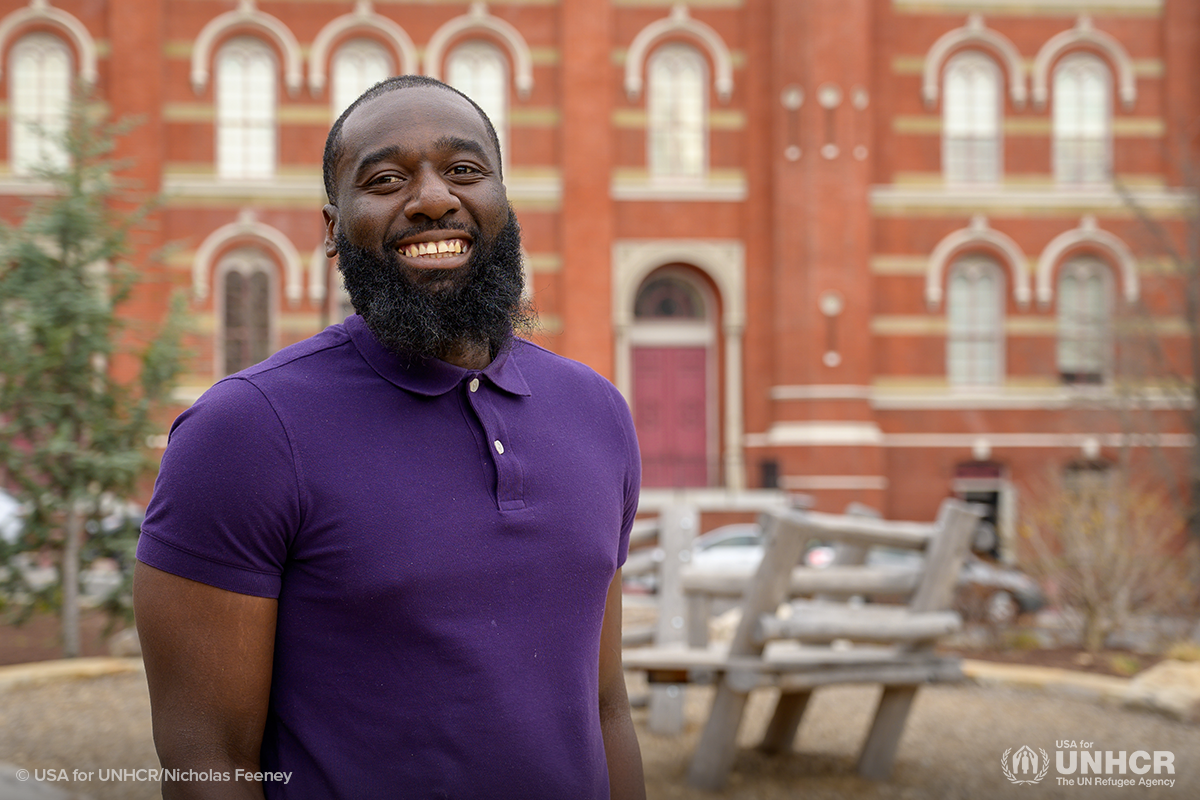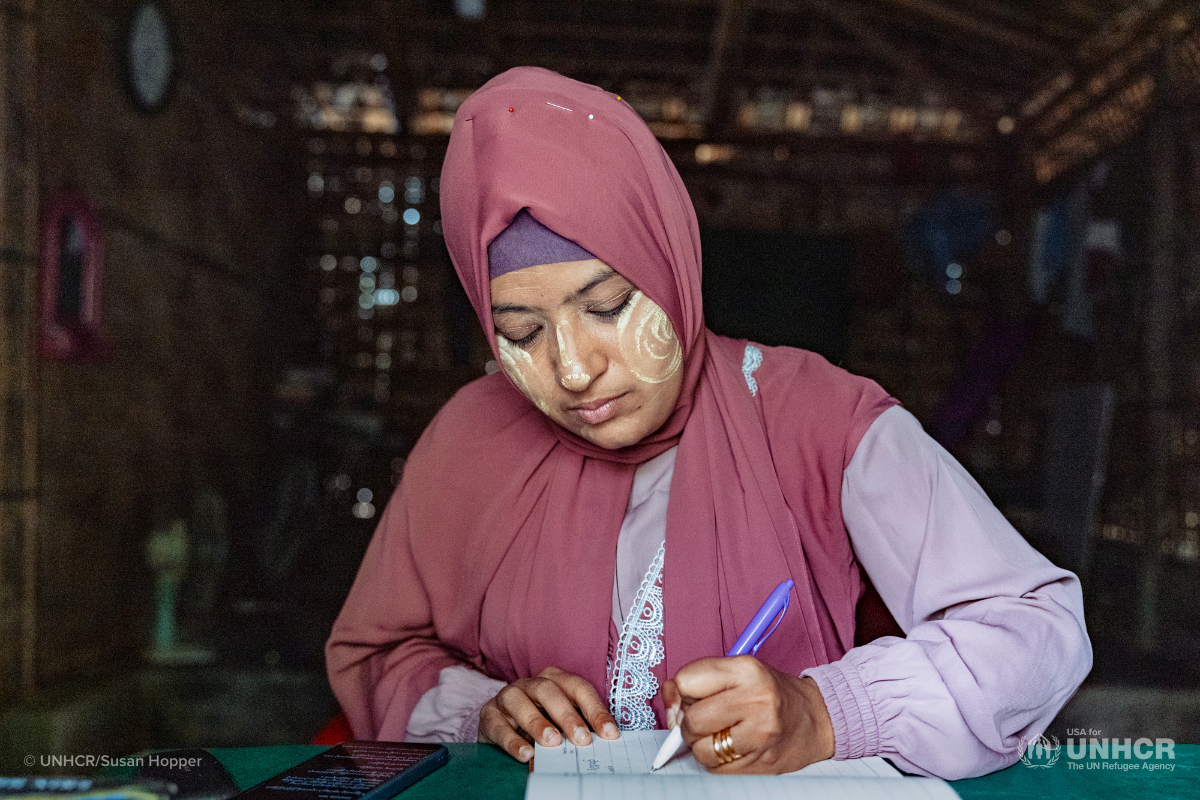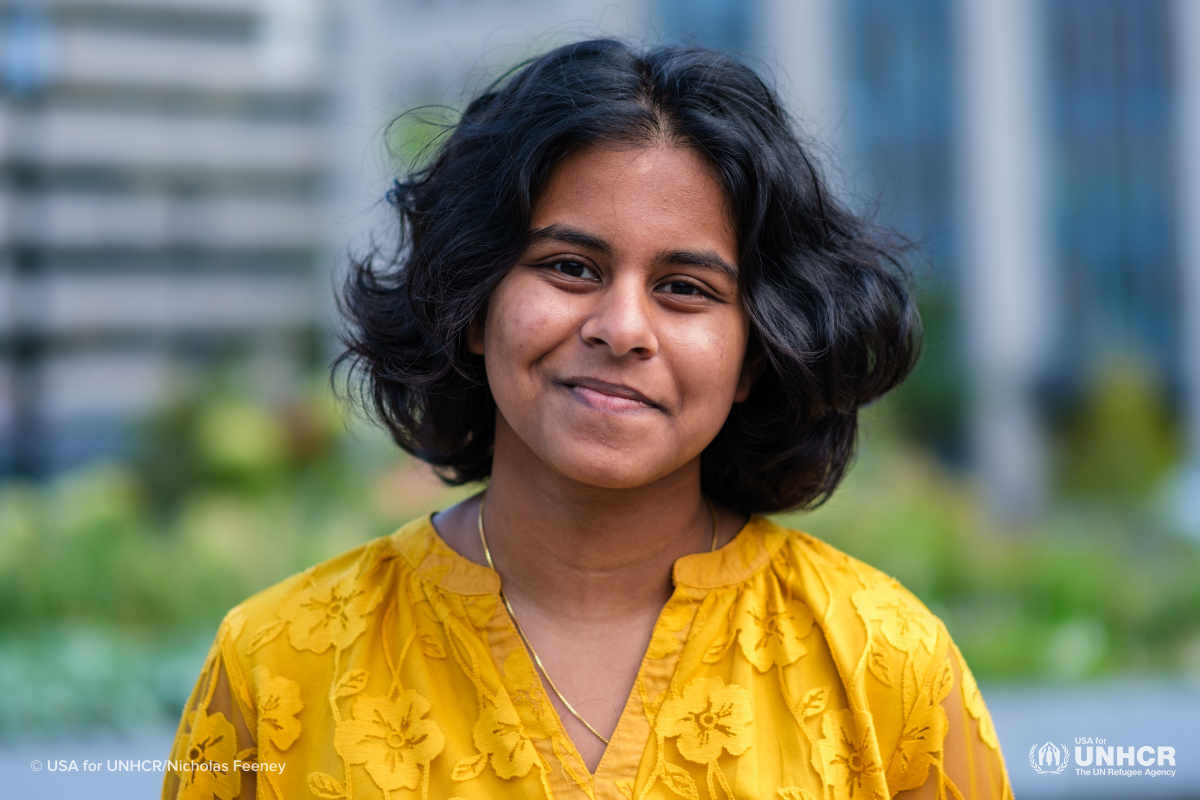Staff Highlight: How a passion for social justice drives one employee’s work with USA for UNHCR
Passionate, dynamic and forward-thinking are some of USA for UNHCR’s core values and just a few of the adjectives we would use to describe our team. The staff at USA for UNHCR come from a diverse range of backgrounds, and these experiences inform the ways in which we serve refugees. In this new Q&A series, we will be highlighting members of our staff and recognizing their passion, work and commitment to our mission.
Clifford Oratokhai is the HR & Operations Coordinator at USA for UNHCR. He also serves on the organization’s Diversity, Equity and Inclusion (DEI) Committee and as a Culture Captain — a rotating group of USA for UNHCR staff members who foster organizational culture and help the team stay connected. We sat down with Clifford to ask him a few questions about his personal and professional experience, his connection to USA for UNHCR’s mission and how he hopes the organization can continue to grow.

Can you share a bit about your academic background and professional experience?
My background has some interesting contradictions in it in terms of my personal interests and professional experience. My academic career has primarily been situated within a profound passion for social justice, a historical exploration of the experiences of marginalized groups, and human rights advocacy. I pursued my Bachelor's degree in History and Political Science at Worcester State University; my Master’s Degree in Political Science and International Relations, with a focus on Human Rights and Sustainable Development, from Suffolk University; and am currently pursuing my Ph.D. in History from Howard University.
But my professional experience has largely been confined to corporate America, in the fields of logistics and operations – which traditionally can hardly be seen as champions or vessels of social justice transformation. But our material needs and their urgencies often require internal compromise and force us, at times, to stray from our passion. However, the opportunity to join this transformative organization at USA for UNHCR has been a welcomed novelty.
You’re on USA for UNHCR’s DEI Committee, can you talk about that work?
The USA for UNHCR DEI Committee was conceived as an evolution and expansion of our Culture Captains initiative. Our hope was to create a more dynamic, energetic, and responsive group within the organization that sought to continue to incorporate concepts of inclusion, belonging, understanding and justice in our work.
We work to accomplish this by organizing guest speakers, book talks, awareness events and a host of other initiatives to stimulate dialogue and discourse around a variety of topics. These topics include race, gender, age, disability, sexual orientation, ethnicity, religion and more. We’ve held several events, from movie viewings centering on disability awareness to the meaning of Juneteenth conversations, to guest speakers on Community art and its impact on activism. And we hope to continue to build on this powerful and transformative work.
Why do you believe it’s important for organizations like USA for UNHCR to incorporate the principles of DEI?
USA for UNHCR, in its mission and purpose, interacts with members from a broad global landscape. The very nature of its work is diverse and dynamic. How can one hope to fully serve, understand and grasp the broad array of experiences and cultural norms if they, as an organization, have not challenged themselves to deconstruct and dismantle entrenched frameworks, structures and notions of inequity?
That’s why it’s important for USA for UNHCR to not just incorporate DEI principles, but for staff to do the work in interrogating and challenging themselves, both in the workplace and out of it, to ensure they are transforming the way they experience, negotiate and order their interpersonal worlds and ideologies.
How do you think American history and the experiences of marginalized groups affects refugees who have resettled to the United States?
The United States has a concerning record of its treatment of marginalized groups. From harsh treatment of ethnic groups during early migration movements to the U.S. in the early 1800s from Western Europe, to the horrific experience of imported Africans as slaves. That, in addition to the Immigration Act of 1924 and its clear objectives to stifle ethnic diversity, as well as the internment of Japanese during WWII are all historical examples of this treatment.
The reality of this history unquestionably impacts the experiences of refugees who are resettling in the U.S. Although I’m sure most are relieved to find refuge, they still must endure a new and unfamiliar landscape. But there is also community, mutual aid, and collectivism found and uncovered in some of those spaces, which speaks to the enduring and unwavering selflessness, love and compassion born out of shared struggle.
How can organizations like USA for UNHCR support Black refugees who have resettled in the U.S.?
USA for UNHCR can support Black refugees by being intentional, attentive and responsive to the shared stories, experiences, and desires of refugees settling into their new communities. By not presuming what is needed by refugees, but by listening to what institutions or organizations have been integral to their transition, and what support systems have been the most impactful. Then, committing to providing increased support to those.
Of extreme importance is the ability to provide Black refugees with spaces to speak and shed light on their journeys and experiences, as well as being intentional about optimizing the resources at USA for UNHCR’s disposal to invest in these communities. Investing can look like providing relief and support to mutual aid organizations that are providing health and wellness services, groceries, supplies, language services, transportation services, or any of the myriad of social functions necessary to thrive.


